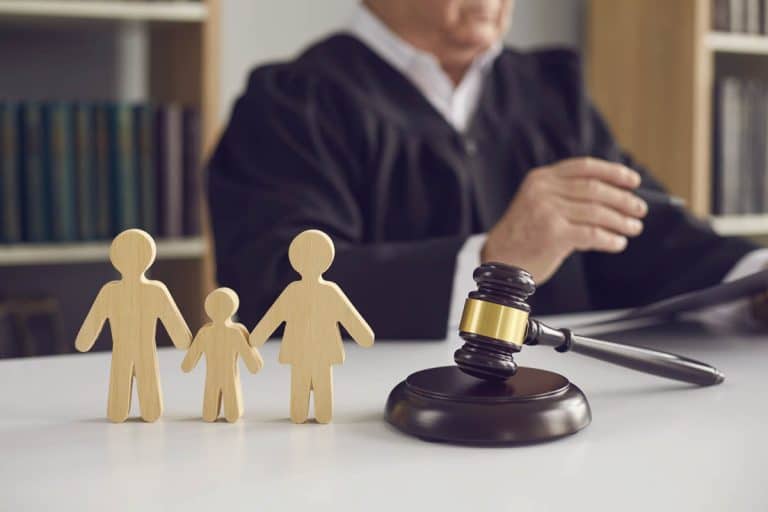Childhood trauma can been seen when a child experiences overwhelming negative experiences in their childhood. It may be an accident, war and civil unrest, natural disasters, medical procedures, or the sudden loss of a parent or caregiver. Children experiencing trauma in their childhood can lead to a host of emotional and psychological issues later in their lives. Past trauma may haunt a child’s future health.
As per the research, events like natural disasters, pediatric medical traumatic stress, physical abuse, child sexual abuse, emotional neglect, etc. can trigger emotional and even physical reactions. These incidents cause many different health conditions, including heart attack, stroke, diabetes, anxiety disorders, obesity, and cancer.
Children are especially at risk of trauma because their brains are still developing. They feel a heightened state of stress during a terrible incident, and at the same time, their bodies release hormones related to anxiety and fear. As a result, they face long-term emotional development, mental health, physical health, and behavior.
In This Article
- Medical Illness Resulting from Childhood Trauma
- Behavioral Changes Resulting From Childhood Trauma
- Develop Post-Traumatic Stress Disorder (PTSD)
- Mental Reactions
- Victimhood Thinking
- The False Self
- Physical Reactions to Trauma
- Long-Term Health Consequences
- How do You Help Your Child with Past Childhood Trauma
Medical Illness Resulting from Childhood Trauma
Childhood Trauma can contribute to many personal, emotional, psychological, and behavioral issues in life. Stressful or traumatic experiences in childhood pass into adulthood. Every child’s reactions are unique, so that every traumatic experience and response is also unique. This medical illness can include as below:
Behavioral Changes Resulting From Childhood Trauma
Children who are suffering from traumatic memories may try to escape them by participating in risky behaviors. Many behavioral changes are resulting from childhood trauma. You can notice some common behavioral changes in adult due to Childhood Trauma. Some common behavioral reactions to trauma include:
- Unable to stop focusing on what occurred
- Avoiding reminders of the event
- Losing touch with regular daily routines
- Eating habit changes i.e. eat a lot more or a lot less
- Sleeping less or enough
Develop Post-Traumatic Stress Disorder (PTSD)
Most children are exposed to traumatic events, while some children are less affected by their circumstances. Children with Develop Post-Traumatic Stress Disorder (PTSD) issues may re-experience the trauma in their minds over and over again. They become hyper-vigilant and think warning signs that something terrible is going to happen again. Children with PTSD may also face problems like:
- Anger and aggression
- Difficulty trusting others
- Feelings of isolation
- Fear
- Depression
- Anxiety
- Self-destructive behavior
Mental Reactions
The way a child reacts towards trauma depends on many things, such as the type and severity of the traumatic event, the existence of certain personality traits, natural levels of resilience, etc. Childhood trauma affects the mental reactions of the child, which include:
- Reduced concentration of mind and memory
- The event repeatedly playing parts over in the mind
- Confusion or Disorientation
- Intrusive thoughts about the event
Victimhood Thinking
In our mind, what we think and believe about ourselves drives our self-talk. Negative self-talk, which may happen due to childhood Trauma, makes me feel like no control over lives like victims.
The False Self
It has been studied that children who carry childhood emotional wounds into adulthood create a false self. The best way to uncover the authentic child underneath the false self is to need to visit a therapist who specializes in childhood emotional trauma. The therapist can help the child to reconnect with feelings and express emotions in a way that makes the child feel both safe and whole.
Physical Reactions to Trauma
People who have bad experiences in childhood face many problems in their future life. Traumatic experiences in childhood can result in physical reactions such as:
- Nausea, vomiting, and dizziness
- Headaches
- Excessive sweating
- Increased heartbeat rate
- Fatigue or exhaustion
Long-Term Health Consequences
Traumatic events in childhood can affect a child’s brain development, and that can have lifelong consequences. The child who experiences more adverse childhood experiences has a higher risk of health and wellness problems later in life. Childhood trauma may increase long-term health issue, such as:
- Depression
- Stroke
- Asthma
- Diabetes
- Heart disease
How do You Help Your Child with Past Childhood Trauma
Family plays a vital role in helping the Child with Past Childhood Trauma. Family support reduces the impact trauma has on a child. Here are some ways to support a child with Past Childhood Trauma:
- Encourage your child to discuss his feelings
- Give Answer their questions honestly.
- Encourage them to share their emotions.
- Stick to your daily routine life as much as possible.
Summary
Depending on your child’s age and needs, the child with past trauma may be referred for treatment like cognitive behavioral therapy, play therapy, or family therapy. Medication may also be the best option to treat a child with such symptoms. Many children with distress are related to trauma exposure, and they need to have help but do not receive psychological treatment. And those who do receive a wide range of treatments, impact in future life. The child with past trauma history needs the help of a health professional.
For resources to help with trauma or other mental health concerns, consider BetterHelp online counseling.











